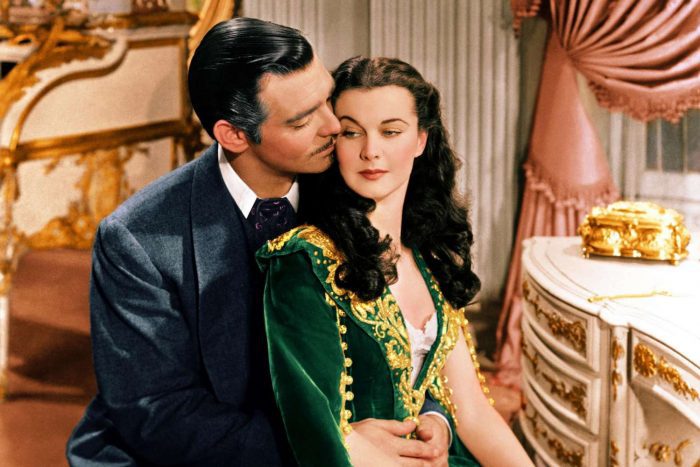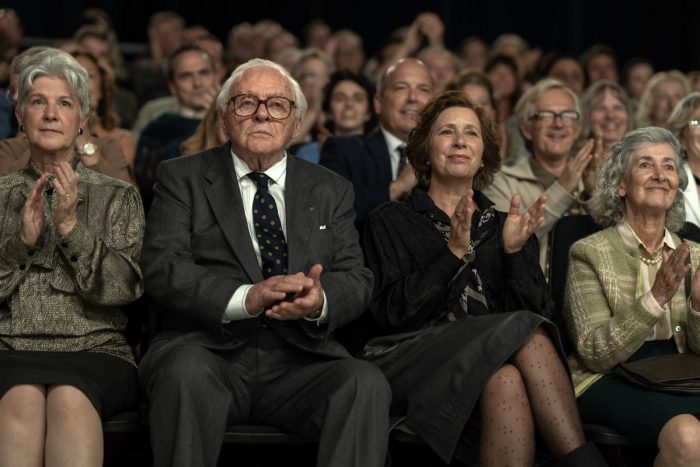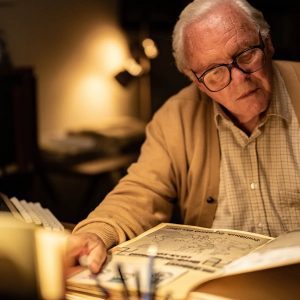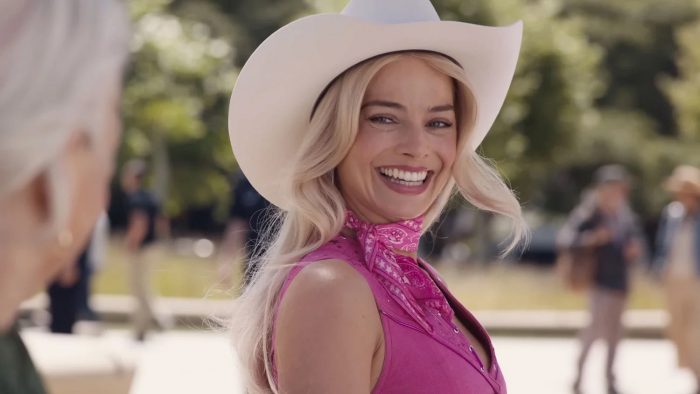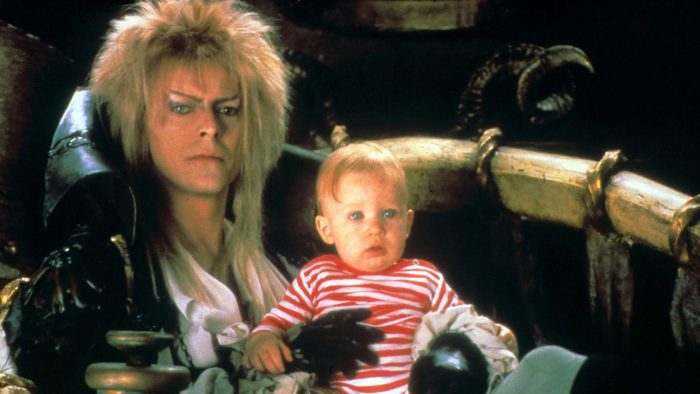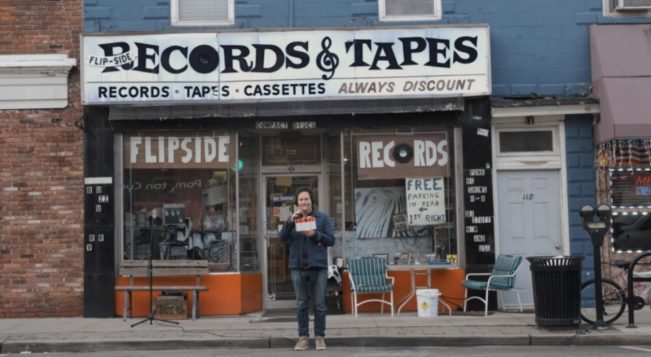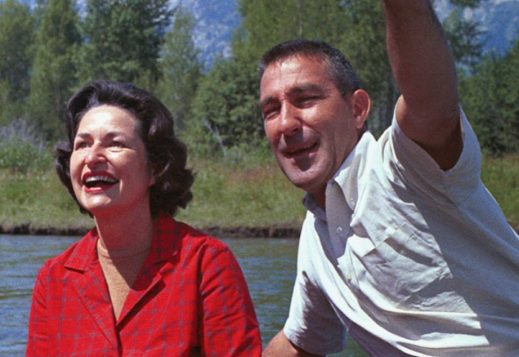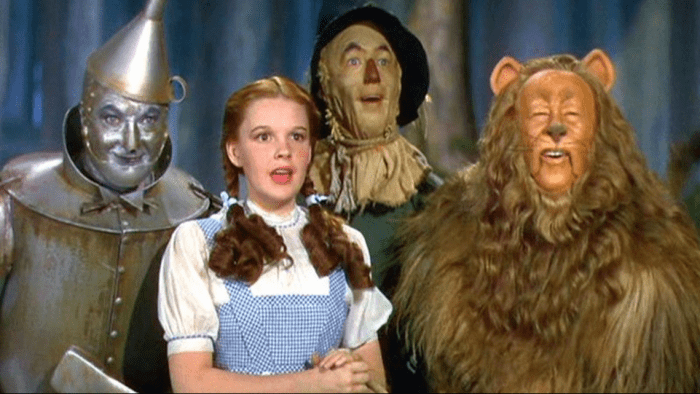Reviewed by Jeffrey Sanzel
In 2008, Robert Kenner co-wrote and directed the documentary Food, Inc., a searing indictment of the food industry that exposed many of the darkest elements of corporate America’s stranglehold. The film laid bare the unhealthy practices and abuse of animals and industry employees. Additionally, it exposed the handful of companies that ruthlessly controlled the entire market. The film mixed interviews with graphic imagery and segue animations. The brutal but eye-opening film received an Academy Award nomination for Best Documentary Feature.

Photo courtesy of Magnolia Pictures
Now Kenner and producer Melissa Robledo have co-directed the sequel: Food, Inc. 2. The film opens with the impact of the pandemic: The consolidated food system revealed itself as too brittle to weather unpredictability. Further, a lack of protocols failed to protect workers from COVID-19 and the spread of contamination. This transitions into an exploration of immigrant workers manipulated by the system and treated as disposable.
Just as in Food, Inc., the film targets the largest companies. In particular, the Tyson Waterloo meatpacking plant in Iowa comes under fire for refusal to contact trace, leading to 1,300 out of 2,500 employees contracting COVID. The illness seeped into the community, causing exponential deaths. Tyson used fear tactics to pressure Washington to enact the Defense Production Act to keep their slaughterhouses open. And perhaps it is this ongoing corruption that is the heart of the sequel—the blood money that keeps monopolies in power. The four largest meat companies control 85% of the market.
The film is a portrait of David and Goliath, with small farmers and small businesses crushed by the mega-conglomerates. In addition to dominating the markets, these companies drain water sources, destroy land, and raise animals in tortuous conditions. It is a story of nature vs. capitalism and profits vs. sustainability. Commodity crops—notably corn and soybean—are subsidized by the government. These two items are the pillars of the industrialized food system.
Food, Inc. 2 focuses a great deal on “ultra-processed food” that relies on chemical flavoring and novelty to create synthetic, ingestible products that lead to addiction, obesity, and other systemic health strains. This destructive food environment offers larger portions, obsession with constant eating, and the cry of “Eat more! Eat more! Eat more!”
The film touches on a workforce crushed by horrific working conditions, wage theft, and even forced labor. Kenner and Robledo address climate change and global warming. However, the film shows changes in the laws, citing the Fair Food Agreement. It offers the alternatives explored in the food sciences: meat without animals, milk without cows, honey without bees, kelp farming, etc. It highlights the closed loop of a sustainable system with a more natural approach to land and sea stewardship.
In all this is the haunting question of whether there has been any real change over the last sixteen years—or only the appearance of change.

Eric Schlosser (Fast Food Nation) and Michael Pollan (The Omnivores Dilemma) host the second film. Their incisive and eloquent presences area welcome support to the narrative. There are interviews with farmers, fishermen, doctors, and scientists. An interesting thread deals with a scientist hired by PepsiCo to explore the relationship between sweetness and calories. When she reported her findings to the giant corporation, it cut off her funding.
One of the most effective testimonies is a fast-food worker who shares the plight of many Americans struggling to survive. She lived out of her car for several years, trying to feed her two children. She has worked for McDonald’s, Popeye’s, and Taco Bell. She reminds us that the average fast-food worker is not a teenager looking to break into the job market, but a thirty-year-old woman with no health care or sick leave. “I’m tired, and nobody knows how tired I am except for the people who go through it like me.” Her story is one of the most powerful in the entire film.
Among the talking heads is New Jersey Senator Cory Booker, a member of the Agricultural Committee, who vocalizes his desire to fix the broken food system. Montana Senator Jon Tester, a farmer with a firsthand knowledge of the death of family agriculture and mass exodus off the land, complements him.
Food, Inc. 2 is an important film but not a great one. While it covers a certain amount of new ground and ends on a more hopeful note, its impact is “less than,” and its effect strangely tacit. The immediacy is not as present, giving the sequel a meandering feel. It is not that it lacks edge, but the blade is the same and slightly duller. Cinematically, it approaches the material in an almost identical fashion. A sense of visual repetition makes the film less surprising and ultimately less engaging. Repetitive footage of farms, labs, and grocery aisles becomes predictable.
But the final message is significant: Individuals can make a difference. “Use your fork, your vote, your voice.”
Food, Inc. 2 is now streaming on Apple TV, Amazon Prime and Vudu.


